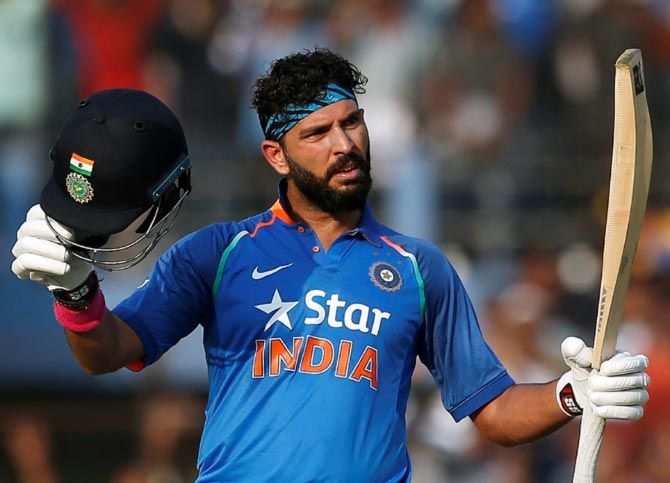On World Cancer Day, Dr Prathima Reddy debunks the various myths surrounding the health condition.

Is cancer a lifestyle disease?
Do superfoods help cure cancer?
What are the warning signs?
On World Cancer Day, February 4, in an e-mail interaction with Divya Nair/Rediff.com, Dr Pratima Reddy, senior obstetrician and gynaecologist shares some important information.
What are some of the common myths around cancer that are not true?
Myth: Cancer has become more common in modern times
Fact: Cancer was described thousands of years ago by the Egyptian and Greek physicians.
In fact signs of cancer were discovered in a 3000-year old skeleton. Whilst it is a lifestyle related disease, it is also true that more people are living longer and damage to the DNA in the cells, increases with age and this can lead to cancer.
Myth: Deodorants and antiperspirants can cause breast cancer
Fact: There is no conclusive evidence to substantiate this
Myth: Super foods prevent cancer
Fact: Certainly beetroot, garlic, blueberries, broccoli and green tea are very healthy but there is no scientific basis that they prevent cancer
Is cancer a lifestyle disease?
Lifestyle factors such as cigarette smoking, diet (fried foods, red meat), alcohol, sun exposure, environmental pollutants, infections, stress, obesity, and physical inactivity can cause 90 to 95 per cent of the cancers.
The evidence indicates that of all cancer-related deaths, almost 25 to 30 per cent are due to tobacco. As many as 30 to 35 per cent are linked to diet, about 15 to 20 per cent are due to infections. And the remaining percentage are due to other factors like radiation, stress, physical activity, environmental pollutants etc.
Therefore, cancer prevention requires smoking cessation, increased ingestion of fruits and vegetables, moderate use of alcohol, caloric restriction, exercise, avoidance of direct exposure to sunlight, minimal meat consumption, use of whole grains, use of vaccinations, and regular check-ups. Some cancers are curable if caught early in the disease.
What are some of the common warning signs of cancer that men and women ignore?
The common warning signs can be summarised with a mnemonic: CAUTION
Change in bowel or bladder habits.
A sore that does not heal.
Unusual bleeding or discharge.
Thickening or lump in the breast, testicles, or elsewhere.
Indigestion or difficulty swallowing
Obvious change in the size, colour, shape, or thickness of a wart, mole, or mouthsore.
Nagging cough or hoarseness.
When is the right time to seek medical intervention?
As soon as you notice any one of the above warning signs seek medical attention.
It is better to err on the side of caution than ignore it till it is too late.
So as a rule of thumb anything that troubles or bothers you seek medical attention as soon as possible.
What are the things one need to be aware of before seeking treatment or signing up with an expert?
Cancer centres that deal with cancers exclusively have better outcomes with regard to survival rates as opposed to individual non specialised hospitals.
So find out about the expertise of that hospital with your particular cancer: What are their survival rates? Do they have qualified experts in that field and do they believe in multidisciplinary team work?
Which are the most common types of cancer in India? Is it preventable?
The most common cancers in Indian women are: Cervical, stomach and breast.
Cervical cancer is preventable if women have Pap smears regularly.
Cervical cancer vaccine protects against cervical cancer to some extent.
The most common cancers in Indian men are: Oral, lung and stomach.
Tobacco causes both oral and lung cancer and thus lifestyle modification can reduce the risk of these two cancers.
The treatment for cancer is expensive. What can people who are unable to afford treatment do about it?
There are several public and private-public hospitals that treat cancer. These are centres of excellence that cater to all socio-economic strata.
How can friends and family support a cancer patient?
They can start by remaining positive and not discussing the negative aspects of cancer.
They could also contribute their time and help out with various chores that need doing at the hospital and home.
If financial help is at all possible that would be a great help.
What advice do you have for people who are fighting cancer?
Medicine has come a long way since cancer was a certain death sentence.
Whilst not all cancers are curable they can certainly be treated.
Remain positive, strive to be strong mentally and physically.
Surround yourself with positive people who will support you in your times of pain and despondency. And remember that as long as there is life, there is hope.
Dr Pratima Reddy is director, Fortis La Femme, Bangalore.










